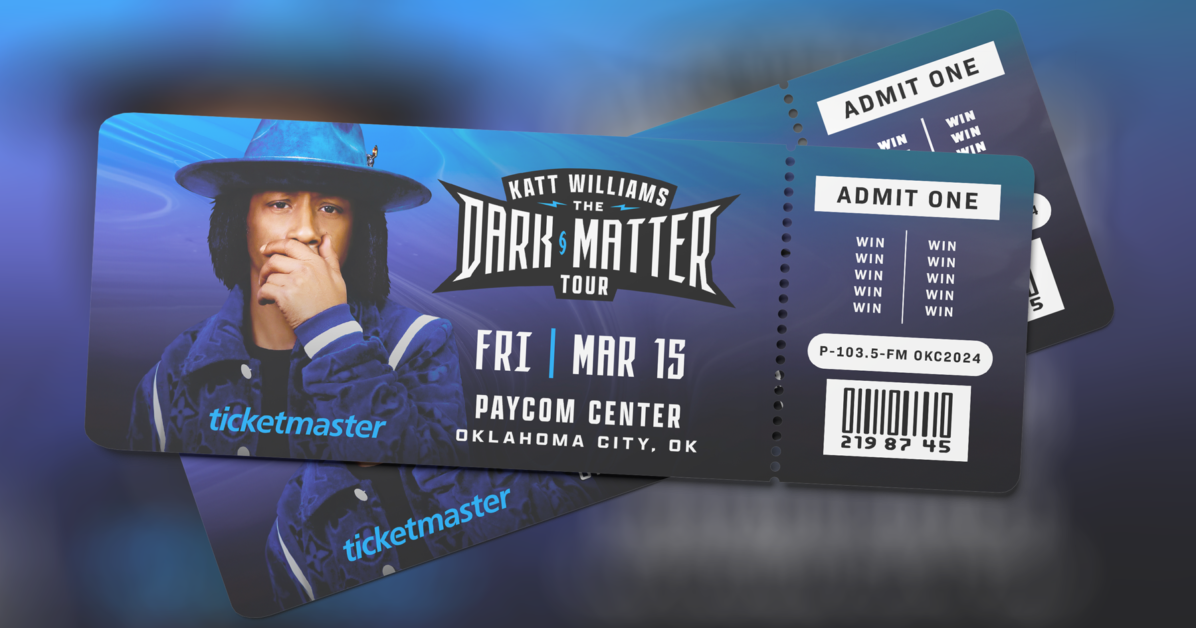And the winner should be … the season’s most overlooked movie performances | Movies
Written by on January 9, 2023
For those who follow the annual sport and silliness of the Oscar race, this year’s competition has been dragging on for months already: supposed frontrunners such as Cate Blanchett and Colin Farrell have been installed since the Venice film festival in September, while other hotly fancied contenders, including Austin Butler and Michelle Yeoh, have been seen and speculated about since last spring. For insiders, that can lead to the contest feeling a bit calcified before it’s even begun, though things are never quite as set in stone as the pundits would have you believe. (Hardly any of them predicted Judi Dench’s bizarre nod for Belfast last year, for example.)
With that flexibility in mind, here’s a selection of outstanding performances that haven’t been getting nearly enough attention this awards season: some may be the longest of long shots, but if we don’t celebrate them, who will?
Alia Bhatt, Gangubai Kathiawadi
SS Rajamouli’s Telugu-language spectacular RRR has made rare inroads for a Bollywood film in awards season, landing prizes from major US critics’ groups and even being talked up as a dark-horse best picture nominee. But Sanjay Leela Bhansali’s brash, punchy Hindi crime epic deserves as much attention, not least for its barnstorming performance in the title role by British-Indian star Bhatt – also briefly featured in RRR – as a young woman, sold into sex work, who claws her way to underworld queendom and, eventually, political power. Loosely based on a real-life figure, it’s a doozy of a character – a rare feminist antihero – and Bhatt plays her with wild-eyed, go-for-broke conviction.
Ricardo Darin, Argentina, 1985
Last month, Santiago Mitre’s Amazon-backed Argentine courtroom drama cracked the shortlist for the best international feature Oscar and remains among the favourites to take the prize – so surprise, given that its dramatisation of the country’s politically momentous Trial of the Juntas is told with a crowd-pleasing Hollywood polish that Aaron Sorkin himself would envy. But it wouldn’t work without a galvanising star turn at its centre, and as the dogged, righteous chief prosecutor battling significant odds in the case, the ever-reliable Darin brings the wry, creased charisma necessary to elevate proceedings above filmed-Wikipedia page territory. He’s the Clooney of Latin American cinema, and it’s time he got some credit for it.
Judy Davis, Nitram
I’ve limited myself to one entry per film, so honestly, this could equally be a plea for Cannes best actor winner Caleb Landry-Jones or Anthony LaPaglia, both extraordinary in Australian director Justin Kurzel’s harrowing, dread-filled portrait of mass shooter Martin Bryant in the years leading up to the 1996 Port Arthur massacre. But it’s Davis, as Bryant’s hardened but haunted mother, her scalpel-carved mouth tensely pursed around a cigarette as she stares down the impossible abyss of parental failure, who gives this chilly film something like a soul. Davis has been away from the big screen since 2015; here she reminds us why she remains one of its most searing presences.
Harris Dickinson, Triangle of Sadness
One of the most pleasing developments of the season thus far has been Dolly de Leon, the internationally little-known Filipina stage actor who owns the third act of Ruben Ostlund’s raucous One Percent satire, emerging as a legitimate best supporting actress contender – even scoring a Golden Globe nod. But she shouldn’t be representing the film alone: as an out-of-his-depth himbo whose manifold insecurities drive many of the film’s key conflicts, British star Dickinson offers a lesson in exquisite comic underplaying, his every moue of distaste or frown of confusion perfectly timed and scaled, wrecking his Adonis cool with a character actor’s lack of vanity.
Anthony Hopkins, Armageddon Time and The Son
After years of phoned-in paycheck work in films you can’t possibly remember, the 85-year-old Welshman is having a second (or third, or fourth) career wind. Two years after pulling off a quiet upset victory at the Oscars for his astonishing turn in The Father, he maintains that form in two tonally opposite portrayals of patriarchal haunting: he’s a hearth of warmth and decency in James Gray’s autobiographical tale of a Jewish New Jersey adolescence, while he needs only a cold, lacerating one-scene cameo to make sense of multiple generations of fatherly neglect in Florian Zeller’s divisive stage adaptation. This time, however, no recognition seems to be forthcoming.
Nicole Kidman, The Northman
Speaking of icy, contained studies of parental dysfunction, Kidman is not to be outdone: her seething, slow-burning and eventually eruptive performance as the Gertrude-type figure in Robert Eggers’ pummelling Viking take on Hamlet was one of the year’s great diva flexes, culminating in an unhinged expression of misplaced carnality to file along her vivid turns in The Paperboy and To Die For. Last year, she was dedicated, fastidious and a little constrained as Lucille Ball in the dreary Being the Ricardos, and was nominated across the board. This year, crickets. Awards season rarely seems to favour Kidman at her most reckless and risky.
Vicky Krieps, Corsage
Five years ago, when Daniel Day-Lewis and Lesley Manville picked up well-deserved Oscar nominations for Paul Thomas Anderson’s delicious Phantom Thread, the then little-known Krieps was left on the sidelines – despite being that film’s calmly mesmerising locus of power. This time, she’s a name, and the figure around which Marie Kreutzer’s smart, sexy, history-bending royal biopic is solely built, so what’s the excuse for ignoring her? As the haughty, suffocated Empress Elisabeth of Austria, breaking rules of form and time to secure her freedom, a magnetic Krieps gives the film both a brain and a restless libido, claiming the screen like a star no longer just born, but fully formed.
Tamara Lawrance and Letitia Wright, The Silent Twins
As this year’s British Independent Film Awards made the switch to gender-neutral acting awards, an innovative new category was introduced: best joint lead performance, for a pair of co-stars whose turns are so entwined and co-dependent that it feels unjust to separate them. The winners were Lawrance and Wright, mutually shattering as June and Jennifer Gibbons, real-life twins whose insistence on communicating only with each other saw them cruelly admitted to Broadmoor Hospital. Playing off each other’s physicality and raw emotional cues, both deserve recognition, but few awards groups accommodate such in-tandem work.
Justin Long, Barbarian
Going into Zach Cregger’s brutal, wickedly funny don’t-go-down-there horror film, I had no idea Long was even in it; that innocence only emphasised the brilliance of the film’s stark second-act gear-shift, cutting from sweaty predatory dread to the goofball comedy of Long’s tragic Hollywood douchebag sliming his way down the Pacific Coast highway. Except, as it turns out, he’s a predator himself: Long’s dopey bro persona has never been put to better, more conflicted comic use, and the film’s unexpectedly switching sympathies ultimately hang on his articulation of masculine entitlement and terror. He’s the year’s most pathetic villain, in the best possible way.
Jack Lowden, Benediction
Scottish star Lowden is tremendous throughout Terence Davies’ impassioned biopic of English war poet Siegfried Sassoon, negotiating the man’s battle-scarred trauma, floridly lyrical imagination and burgeoning sexuality with a fluency that never takes glib short cuts to feeling. But it’s his climactic scene that offers perhaps the best few minutes of acting seen on screen all year: as he sits on a park bench, those aforementioned internal streams finally converge into one torrent of tears, a near-collapse of body and soul overlaid by his stirring recitation of Wilfred Owen’s poem Disabled. It’s stunning emotional maximalism, yet not one degree overcooked.
Matthew Maher, Funny Pages
To fill out its ensemble of awkward, emphatically unsexy social misfits, Owen Kline’s grimly hilarious debut feature placed more trust in its casting director than its makeup team: it’s a glorious celebration of actual character actors, with odd, expressive faces to match their offbeat characterisations. Top of that list is Maher, equal parts volatile and achingly vulnerable as Wallace, an isolated, unstable former cartoonist just trying to get by in life – and hostile to the attentions of the young aspiring artist determined to make him his mentor. Pushing past standard indie-movie notions of appealing quirkiness, a tense, lisping Maher dares to make Wallace a genuinely challenging figure, all the more sympathetic for how defiantly unlovable he is.
Guslagie Malanda, Saint Omer
A few weeks ago, I noted on Twitter that Malanda was being egregiously overlooked in awards season; a few days later, as luck would have it, the London Critics’ Circle nominated her for best supporting actress. With that outcome in mind, I’m again making a plea for the French actor’s staggering turn as a Senegalese immigrant standing trial for the murder of her own infant child. Alice Diop’s brilliant, form-breaking courtroom drama is chiefly an exercise in looking, as characters survey each other to find truths in themselves – in a role that could lend itself to histrionics and melodrama, it’s the deep, piercing stillness of Malanda’s gaze, loaded equally with pride and shame, that works its way under your skin.
Samantha Morton, She Said
The practice of “category fraud” – leading actors being campaigned in supporting categories to up their chances of winning – is an awards-season fixture, and one of this year’s most egregious examples is Carey Mulligan being pushed as supporting for her first-billed role in She Said. It’s a strategy that has all but scuppered the chances of other actors acing far smaller roles in the same film, like Morton, who has but one scene as a wronged, rageful former Miramax intern in this Weinstein-scandal drama, and tackles it with such white-hot fury and clarity of purpose that the whole film’s mission statement feels strengthened in its wake. This is what supporting awards should be for.
Margaret Qualley, Stars at Noon
At one point in Claire Denis’ oddly underrated, humidly erotic political thriller, Qualley’s character Trish – an American journalist adrift and inclined toward sex work in Nicaragua – secures the two grocery items most important to her, and sings an impromptu ode to them. “Ru-uuum and sham-poooo,” Qualley trills with odd, lilting emphases, a seemingly improvised detail typical of the actor’s beguilingly supple, off-kilter work here, which resists expected femme-fatale stereotype while candidly copping to an ugly-American archetype. Andie MacDowell’s daughter has emerged as one of the most interesting US actors of her generation; here, she exhibits the unpredictable magnetism of a proper movie star.
Taylor Russell, Bones and All
Timothee Chalamet was the selling point of Luca Guadagnino’s unlikely but seductive blend of YA romance and grisly cannibal horror; he’s good too, all gangly, grungy swagger, but it’s Russell who answers the film’s hardest asks. As a teenage “eater” facing a lifetime on the social margins save for one true love, Russell can match her co-star’s dreamy, gazy mood-mongering beat for beat, but her performance is also coloured by a naive, tactile thrill of bodily discovery – whether the bodies in question belong to her or others. An early scene in which girlish flirtation turns on a dime to violent fleshly assault is hard to play; Russell makes them feel like two sides of the same coin.
Rachel Sennott, Bodies Bodies Bodies
Proving that her wily comic turn in 2021’s Shiva Baby was no fluke, Sennott scored again as the MVP of Halina Reijn’s GenZ spin on Agatha Christie. The running joke of this country-house murder mystery is that almost all the characters are so insufferable you hardly miss them as they drop dead, yet Sennott’s Alice is the one you hope will stick around, for droll comedy value alone. Bedecked with glo-sticks, she makes this entitled, vastly irritating podcaster princess a walking parody of generational neuroses, but the caricature isn’t overly unkind or inhuman. “I’ve never actually said this to someone, but I have body dysmorphia,” she says at one point – it’s desperately eager, moment-seizing delivery that somehow makes the line funny.
Tang Wei, Decision to Leave
Western audiences have seen too little of Tang Wei since her head-turning debut in Ang Lee’s Lust, Caution 15 years ago. Though she’s been working steadily since, her lithe, ever-shifting turn as the femme (maybe) fatale of Park Chan-wook’s elegant romantic noir feels like a new arrival, one that marries a melancholic maturity to the sensuous abandon she showed in her debut. The film’s tangled pull depends very much on her own: enigmatic but never merely opaque, she’s a fully persuasive object of obsession.
John Douglas Thompson, Till
Danielle Deadwyler has deservedly been racking up best actress mentions for her wrenching performance as the seething, grieving mother of lynched Black schoolboy Emmett Till, though with attention largely centred on her performance, the film’s sturdy ensemble has gone largely unnoted. Particularly hard done-by in that regard is Thompson, quietly devastating as the morally plagued great-uncle to the murdered boy, burdened with the guilt of having opened the door to Till’s white persecutors. Thompson counters Deadwyler’s gut-spilling mourning with a different kind of tortured, soulsick sorrow, heavy with what-ifs and the knowledge of what is; in the film’s most moving scene, they finally overlap and understand each other.
watch avatar the way of water full movie
watch avatar the way of water full movie
watch avatar the way of water full movie






